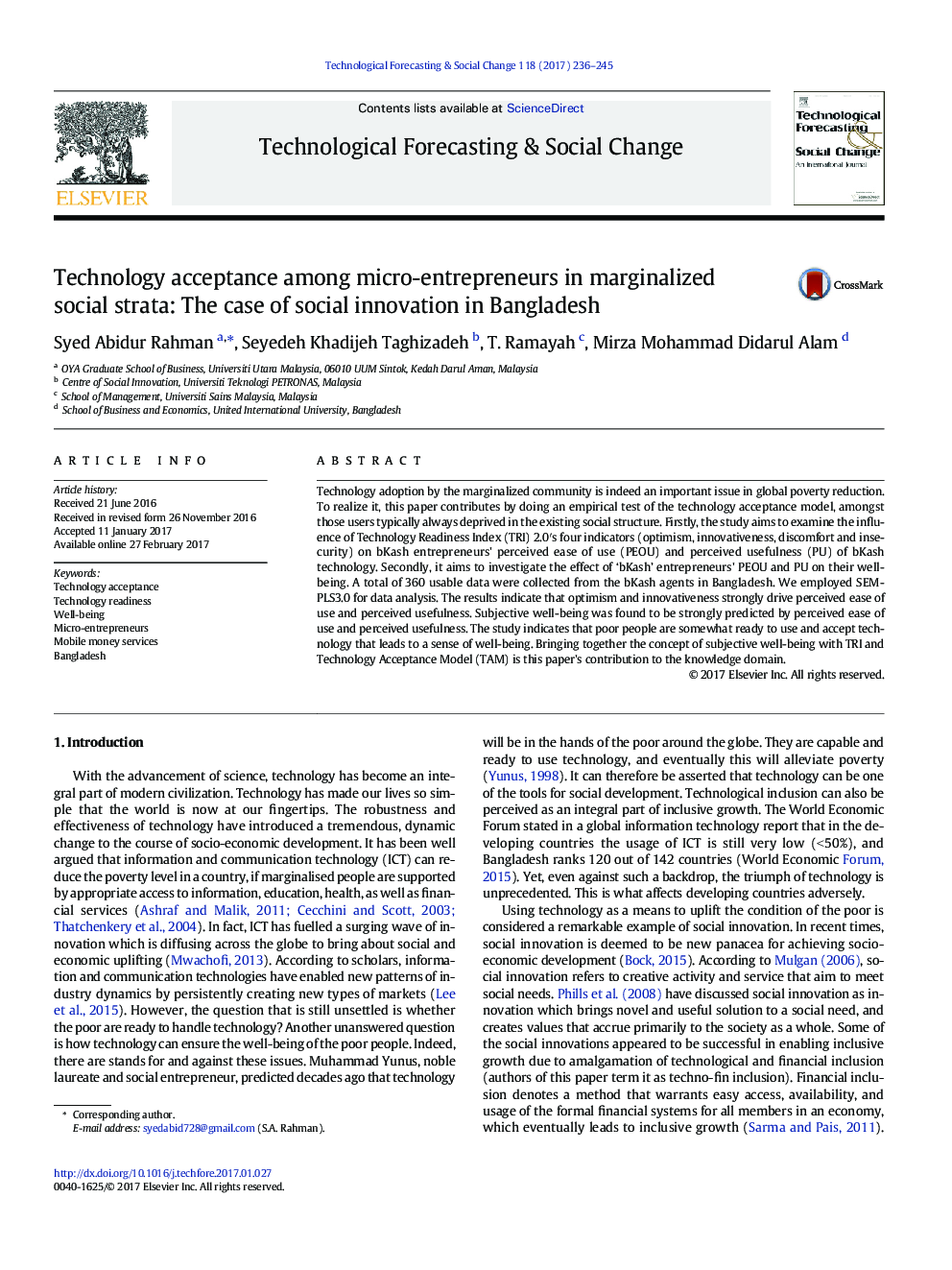| Article ID | Journal | Published Year | Pages | File Type |
|---|---|---|---|---|
| 5037048 | Technological Forecasting and Social Change | 2017 | 10 Pages |
â¢This paper studies entrepreneurs from marginalized strata in Bangladesh.â¢Poor people are somewhat ready to use and accept technology.â¢Usage of technology enhances the well-being of entrepreneurs.â¢Techno-fin Inclusion enables social innovation.
Technology adoption by the marginalized community is indeed an important issue in global poverty reduction. To realize it, this paper contributes by doing an empirical test of the technology acceptance model, amongst those users typically always deprived in the existing social structure. Firstly, the study aims to examine the influence of Technology Readiness Index (TRI) 2.0â²s four indicators (optimism, innovativeness, discomfort and insecurity) on bKash entrepreneurs' perceived ease of use (PEOU) and perceived usefulness (PU) of bKash technology. Secondly, it aims to investigate the effect of 'bKash' entrepreneurs' PEOU and PU on their well-being. A total of 360 usable data were collected from the bKash agents in Bangladesh. We employed SEM-PLS3.0 for data analysis. The results indicate that optimism and innovativeness strongly drive perceived ease of use and perceived usefulness. Subjective well-being was found to be strongly predicted by perceived ease of use and perceived usefulness. The study indicates that poor people are somewhat ready to use and accept technology that leads to a sense of well-being. Bringing together the concept of subjective well-being with TRI and Technology Acceptance Model (TAM) is this paper's contribution to the knowledge domain.
